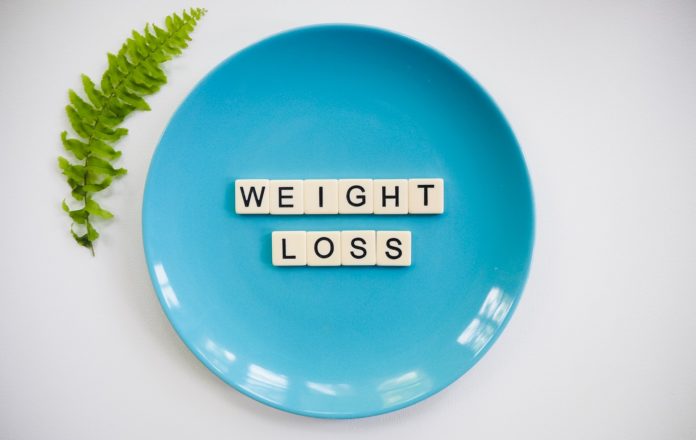Committing to a weight loss diet is something that should be rewarded. And no doubt, dieting can be quite stressful. There is a right and a wrong way for weight loss. Different diets provide different results to different people at different times. But many different diets are just plain bad logic too. The truth is that dieting – in and of itself – can be profoundly detrimental to the body unless you do it right.
Many people are looking for weight loss, counting the calories in every single portion, fruits and veggies are your best friends but nothing seems to help the results you wanted. You may be following misguided or a bit outdated advice. Don’t feel bad. It can happen to anybody.
Several common lifestyle mistakes may slow down your metabolism. Avoid these mistakes you need not make on weight loss, with a little effort!
Keep reading to learn about the top 11 dieting mistakes so you can avoid them when you are on a weight loss.
1) Setting Unrealistic Goals:
When you get onto a weight loss journey, ask yourself first before you take a drastic decision on exercise. Will you exercise daily for 1-2 hours for the rest of your life starting now? Will you never cheat yourself with a portion of delicious food during weekends?
If yes, don’t stop yourself – you already earned your rewards of eating out and following a healthy lifestyle throughout the week.
Setting goals is great, but these goals should be broken down into bite-sized tasks and calculated how long it would take so you can achieve them easily soon.
2) Starving Yourself:
Reality: No matter what the fad diets may claim, starving throughout the day is not a sustainable weight loss strategy and it is a big no-no. Starving yourself is not the answer. You need to eat such that you aren’t hungry at any given point. You can keep yourself away from food only to a certain extent, but when you stay too hungry and don’t eat enough, your body will be thrown into starvation mode and once you break you tend to eat anything and everything that comes your way.
Keep eating at regular intervals, this way you remain satiated. While you are at it, make sure you are practicing portion control, and keeping it under check will work well for your fat loss goals.
3) Doing Nothing After Losing Weight:
Sad but true! If you don’t exercise and do not want to stay on a diet forever after losing weight, you inevitably lose some muscle mass and you are likely to experience a decrease in metabolic rate. To look and feel your best, you need to remain active by incorporating regular exercise into your routine.
Exercising helps increase fat loss, prevent your metabolism from slowing down, and minimize the amount of lean mass you lose. The lean mass you have, the easier it is to lose weight and maintain the weight loss.

4) Only Focusing on Scale Weight:
Yes, believe it or not, there is more to dieting than the number on the scale. And you may be thinking, why would I need to track my progress? Yes, it provides a nice, simple measure of your success but stop focusing so much on the number on the scale, instead, focus more on your journey ahead. It is important to remember that the number on the scale is only one measure of weight change.
Actively improving your health can be challenging for some and don’t be discouraged if you are following your diet adamantly but not losing weight. Instead, writing down in a journal is highly recommended as it can help you visually track your progress, as a self-motivating tool, and also help you relieve stress which is beneficial to your mental health.
5) Eating Less/Inadequate:
The amount of food you eat during a meal is important. As you lose weight, thinking you need to eat lesser to lose more weight is not a smart idea. If you eat a little, you will not satisfy the needs of your body. Controlling the size of your meals is one of the things you should always have in mind.
6) Not Getting Enough Sleep:
Sleep is extremely important for good health. One study found that healthy adults who slept 4 – 5 hours per night for 5 nights in a row experienced a decrease of 2.6% in resting metabolic rate, on average. Missing out on sleep results in higher weight retention.
If you do not sleep enough, it can lower your metabolism and your diet efforts will not give any results. It can also increase your appetite while lowering your ability to be productive when going to the gym.
One of the best things you can do with your diet is to spend 8 hours of sleep per day. So, if you want to make the most of your diet, get in bed!
7) Drinking Sugary Beverages:
Sugary drinks are detrimental to your health. Many people cut off soft drinks and other sweetened beverages from their diet to lose some weight. However, many people drink fruit juices which are not necessarily better.
Even 100% fruit juice is loaded with sugar and high consumption of it may lead to health problems, including diabetes, obesity, and insulin resistance.
Frequently consuming sugary beverages may also slow down your metabolism. Research shows that excessive fructose consumption promotes increased fat storage in your belly and liver.
Remember, your diet involves everything that goes into your body. That means drinks, too! Just don’t overdo it with bottled smoothies and fruit juices.

8) Eating Too Few Calories:
Your body needs a certain number of calories per day to function properly.
Consuming fewer calories can cause a major decrease in metabolism. Although a calorie deficit is required for weight loss, it can be counterproductive for your calorie intake to drop too low.
According to one study, when obese women ate 420 calories per day for more than 4 months, their resting metabolic rates significantly slowed down. What is more, even after they increased their calorie intake over five weeks, their resting metabolic rates become much lower than before the diet. Even when calorie restriction is more moderate, it can still slow metabolism.
When you dramatically lower your calorie intake, the body senses that you are not eating very many calories and lowers the rate at which it burns calories.
If you are going to lose weight by calorie restriction, don’t restrict your calorie intake too much — or for too long. Your metabolism will slow down and it will take several years to start normal functioning again.
9) Choosing “Diet” Foods:
Another common obstacle people unknowingly succumb to is the allure of “diet” foods. “Diet” foods are often considered healthy choices that can help you lose weight. However, they may have the opposite effect.
Many diet items found throughout supermarkets (low fat, light, etc.) are loaded with salt and sugar to compensate for the change in taste. For instance, a 6-ounce container (170 grams) of low-fat flavored yogurt can contain 23.5 grams of sugar (over 4 teaspoons).
The Centers for Disease Control and Prevention (CDC) recommends that a 2,000-calorie diet include less than 12 teaspoons of added sugar per day.
Be careful not to fall for the hype, a little time spent on the back of the box can help for your weight loss journey.
10) You Eat Too Many Salads:
A meal of salad has much fewer calories than a burger, but it is time to diversify the palate a tad. Yes, salads are good for your health and can be a pivotal component of weight loss, however, you need satisfaction, otherwise, you will be back at your house looking for a snack.
A better solution is to just mix in more healthy options like a healthy sandwich or an omelet. Also, make sure your meals are well-balanced.
Lastly,
11) Skipping Breakfast:
Like most people trying to lose weight, you are always on the run, and you practically forget your breakfast. It is the most important meal of the day. You should not skip breakfast and that is the biggest mistake when trying to lose weight.
Plus, when you eat your breakfast regularly, it will fill you up with energy, prevent premature starvation, and the chances to eat too much at lunch are minimal.
Dieting is hard work. The decision to lose weight and begin a journey to wellness is a great one. To truly lose weight healthily, it is so important to know what they are and nip them in the bud.
Engaging in lifestyle behaviors that slow down your metabolism can lead to weight gain over time. Always remember to watch for these common pitfalls. That said, many simple activities can boost your metabolism to help your weight loss journey and keep it off.
With a little bit of extra care, you can give yourself a more effective and fulfilling diet than ever before.



